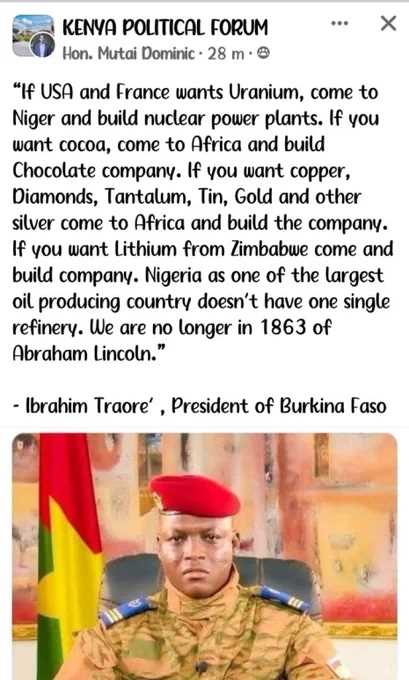
Harry Peter Wilson
Ever since the end of direct colonialism, European powers have tried to continue with their stranglehold on Africa through indirect means, which have included fuelling conflict in the new nation states.
The major players in the colonisation of Africa were Britain, France, Germany and Portugal while the Belgians followed behind.
As things stand today, the same countries are battling to keep controlling their former colonies.
This explains the creation of the World Bank and the International Monetary Fund as well as the World Trade Organisation.
The three international institutions were inherently set up to destroy the only three mechanisms for economic growth and prosperity.
The World Bank’s central planning destroys the division of labour, the IMF’s monetary stipulations destroy the chance of having sound and hard money and thus accumulated capital, and, on the other hand, WTO prevents technological advancement of poor countries through patents.
Zimbabweans have walked this road of western economic prescriptions and proscriptions imposed by the IMF’s Economic structural Adjustment Programme which led to untold suffering of the masses.
Esap failed Zimbabwe ad Zimbabweans. People suffered with subsequent job losses and related consequences of the IMF-prescribed programme.
The current conflict in Niger has to do with nothing except the country’s resources and it explains the interest of the foreign powers in the African nation.
A quote attributed to Burkinabe President Ibrahim Traore might help explain the crisis Africa faces.

Related Stories
Africa must look at adopting home-grown solutions and not just taking systems from outside which end up failing, leading to untold suffering for the people.
That is why the Democratic Official Party is saying Zimbabweans must know their choices as we draw closer to the Harmonised Elections on August 23.
The revival of the Zimbabwean economy – which has faced numerous challenges over the past decades, can be achieved through the revitalisation of our agriculture and mining sectors, which for long have shown the potential of pulling Zimbabwe out of the abyss.
The country is endowed with rich mineral resources, such as gold, diamonds, platinum and lithium, among others. These mineral resources have been underutilised due to poor management and lack of investment.
In a way, it is imperative that the country attracts serious miners with the expertise and modern equipment. The sector, once revamped, can create thousands of jobs and spur growth for related industries such as manufacturing and processing.
Subsequent increased exports and foreign exchange earnings will undoubtedly contribute significantly to economic growth.
The livelihoods of ordinary people, which have been in decline over the years, will be improved as a result.
Agriculture is the mainstay of the Zimbabwean economy. However, with inherent climate change-induced threats, the country’s potential to be food-secure is threatened if there is a drought. As a result, there is need to climate change-proof our agriculture.
The establishment and rehabilitation of irrigation schemes is the way to go and needs to be complemented by a robust mechanisation programme which will lead to a massive boost in productivity. Therefore, Zimbabwe, once known as the breadbasket of Southern Africa, will regain its status.
The agricultural sector has great potential to revive the economy. Our government will support resettled farmers with modern farming equipment and provide them access to market boards for further processing and distribution. Unused land should be allocated to capable farmers to increase agricultural production. Investing in agriculture will not only boost food security but also create employment opportunities across the value chain.
Once these critical sectors are revamped, everything else will start to fall into place. Transformation of people’s lives will be inevitable, as a result.



















Leave Comments